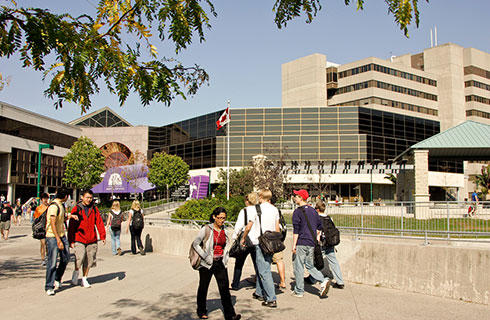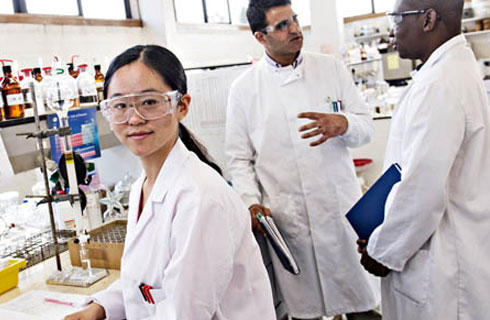Bachelor of Ars in Molecular and Cell Biology - Immunology and Pathogenesis

学历文凭
Bachelor Degree

专业院系
免疫学

开学时间

课程时长

课程学费

国际学生入学条件
Completed their secondary education and have earned a certificate of completion which enables them to be admitted to a university in their home country. Never been enrolled as a university student. GPA - 3.40.
Test of English as a Foreign Language (TOEFL) with a minimum score of 80 or better (Berkeley prefers 100). International English Language Testing System (IELTS) with a minimum score of 6.5.
IDP—雅思考试联合主办方

雅思考试总分
6.5
了解更多
- 雅思总分:6.5
- 托福网考总分:80
- 托福笔试总分:160
- 其他语言考试:DuoLingo English Test (DET) with a minimum score of 115
CRICOS代码:
申请截止日期:请 与IDP联系 以获取详细信息。
课程简介
Humans inhabit an environment teeming with microbes and their toxins. The omnipresent threat of infection and the emergence of new infectious diseases has catapulted immunology to the forefront of modern biomedical science. Immunology is the study of the cellular and biochemical mechanisms which protect us from these threats. Infectious agents such as human immunodeficiency virus which causes AIDS and immune-based diseases such as asthma have increased the public awareness about the importance of immunology in examining the causes and treatments of these diseases. Immunology is unique amongst the natural sciences in that it covers and integrates aspects of modern biological science including cell and developmental biology, biochemistry, genetics, and molecular biology.<br><br>Using approaches from many disciplines and techniques as diverse as recombinant DNA, flow cytometry, physical chemistry, mouse transgenesis, and targeted mutation in mice, immunologists have made major advances and striking discoveries leading to an ever-growing understanding of the immune system. We continue to explore questions such as how the immune system distinguishes self from non-self, how antibodies, T cells, and natural killer cells specifically recognize and distinguish millions of different foreign invaders, why some individuals are more susceptible to the development of autoimmune diseases, and how the immune system rejects transplanted organs but often fails to reject tumors. In addition, immunologists study questions of broader biological significance including how gene expression is regulated during animal development, the biochemistry and regulation of gene rearrangement, the mechanism and function of immune surveillance, and the control of programmed cell death.
相关申请

预科

奖学金

实习机会

在校学习

跨境学习

校园授课-线上开始

在线/远程学习
学校排名
世界排名
13
数据源:泰晤士高等教育世界大学排名
关于加州大学伯克利分校

商科,工程,教育,法律,只要你能想到的专业,伯克利即使没有排名前5,也不会排到10名开外! 在伯克利加州大学,没有来自保守传统的约束,没有不可逾越的清规戒律,在这片自由的土地上你可以天马行空,放开思维畅想,自由探索未知世界,在这里你的思想永远会得到尊重,即使别人并不同意你的观点。伯克利还是世界上最重要的研究教学中心之一。伯克利的招生过程更看重申请者的整体水平,招生部门认为一个人的成就可以通过任何方式得以体现,因此单论标准考试分数的高低不会决定你是否能被伯克利录取。UCB也提供各种奖学金,每年有200名幸运儿能够通过 "Regents’and Chancellor’s Scholarship" 获得本科四年部分乃至全部资金支持。
本校相关课程
Doctor of Philosophy in Statistics

学历文凭
Ph.D.
下一个开始日期
课程费用总额
Doctor of Philosophy in Political Science

学历文凭
Ph.D.
下一个开始日期
课程费用总额
Doctor of Philosophy in Sociology

学历文凭
Ph.D.
下一个开始日期
课程费用总额
Doctor of Philosophy in Social Welfare

学历文凭
Ph.D.
下一个开始日期
课程费用总额
Doctor of Philosophy in Nuclear Engineering

学历文凭
Ph.D.
下一个开始日期
课程费用总额
Doctor of Philosophy in Molecular Toxicology

学历文凭
Ph.D.
下一个开始日期
课程费用总额
其他相关课程
Doctor of Philosophy in Microbiology and Immunology

普渡大学
泰晤士高等教育世界大学排名:

学历文凭
Ph.D.
下一个开始日期
课程费用总额
Doctor of Philosophy in Immunology

密歇根大学安娜堡分校
泰晤士高等教育世界大学排名:

学历文凭
Ph.D.
下一个开始日期
课程费用总额
分子微生物学和免疫学哲学博士

约翰霍普金斯大学
泰晤士高等教育世界大学排名:16

学历文凭
Ph.D.
下一个开始日期
课程费用总额
Doctor of Philosophy in Biological/Doctor of Philosophy in Biomedical Sciences - Immunology

耶鲁大学
泰晤士高等教育世界大学排名:10

学历文凭
Double Major Degree
下一个开始日期
课程费用总额
生物医学和分子科学理学硕士-微生物

女王大学
泰晤士高等教育世界大学排名:

学历文凭
Masters Degree
下一个开始日期
课程费用总额
Doctor of Philosophy in Immunology

爱荷华大学
泰晤士高等教育世界大学排名:342

学历文凭
Ph.D.
下一个开始日期
课程费用总额



